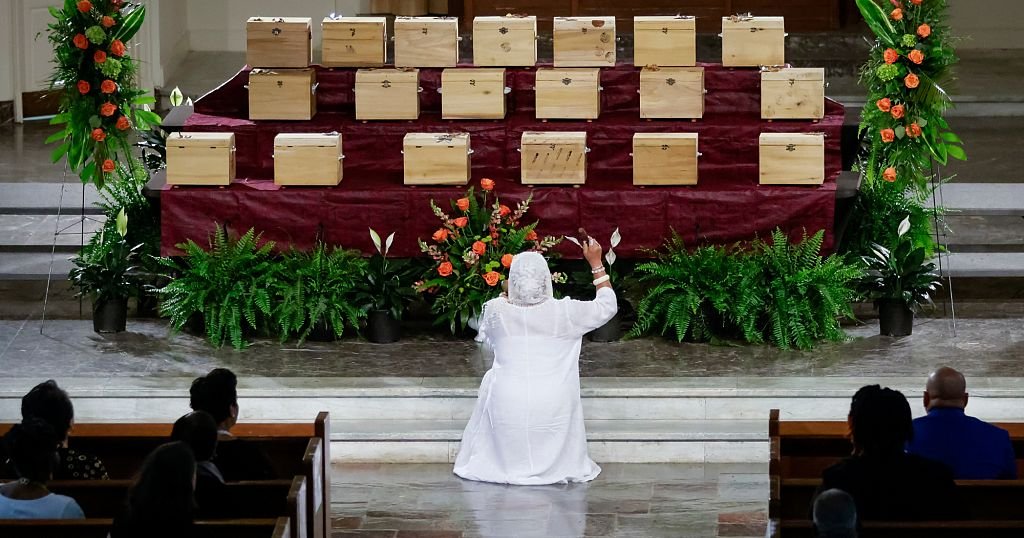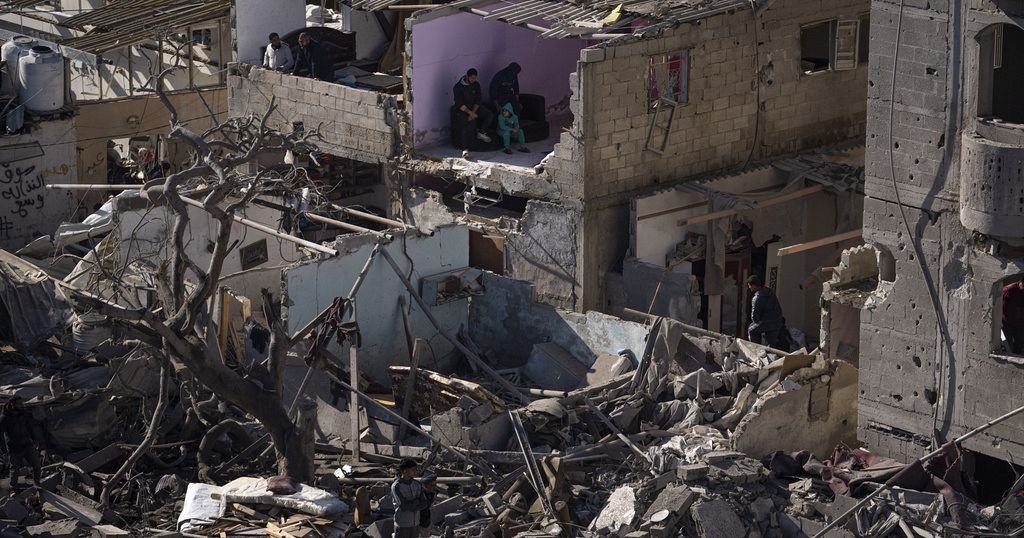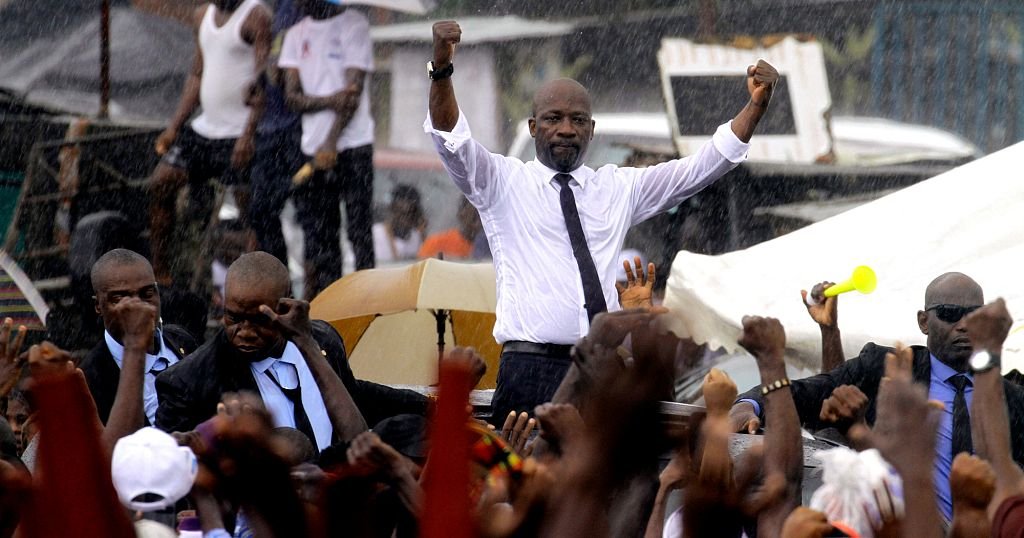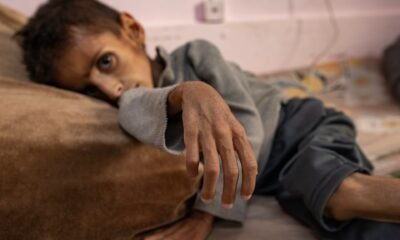Africa
Somalia: German nurse kidnapped in 2018 calls for help

A German nurse kidnapped while working in Somalia seven years ago has called on the German government to secure her release, as security in the country remains precarious following an assassination attempt on the president by al-Qaeda and al-Shabab militants.
In a video posted on social media, a visibly distraught Sonja Nientiet explained that her health had deteriorated and that what was keeping her going was the hope of seeing her loved ones again.
On May 3, 2018, Sonja Nientiet was taken through a back door from the International Committee of the Red Cross (ICRC) compound in Mogadishu, the capital of Somalia . Somali authorities later claimed it was an inside job by a disgruntled former employee.
Christian Cardon , spokesman for the ICRC, said the video gave “hope for his release” .
“The ICRC will continue to work tirelessly, with all its influence, for this result ,” he said in a statement, adding that the ICRC was “deeply concerned” about Nientiet’s health and that the priority was to release her quickly and safely.
“In order not to compromise these efforts, we cannot provide further information on the kidnapping, nor comment on the circumstances surrounding it ,” Cardon said.
Sonja Nientiet, who speaks calmly in English with a German accent in the video, has visibly aged compared to the photos from her youth. She wipes away tears as she describes her rescue as a matter of life and death .
Little has been reported about her since her abduction, and this is only the second video in which she has been seen, following the first in 2018. The German Foreign Ministry said the government does not comment on hostage cases involving German citizens abroad as a matter of policy.
The security situation in Somalia remains fluid with recent attacks by Al-Shabab, the latest of which was the one targeting a presidential convoy last week. The Somali government has intensified its military campaign against Al-Shabab in recent months, with troops gaining territory in Middle Shabelle and other regions.
Africa
Skulls of 19 African Americans returned to New Orleans after 140 years

After their bodies were dismembered over a century ago and their skulls sent to Germany in racially-biased phrenology research, the remains of 19 African Americans have been returned to New Orleans for a proper send off. Sometime in the 1880’s New Orleans physician Dr. Henry D. Schmidt sent 19 crania to Leipzig, Germany for research.
The research believed skull shape could determine personality traits. In 2023, researchers with University of Leipzig began organizing the return of 19 skulls. “It is a demonstration of our own morality here in New Orleans and in Leipzig with the professors there who wanted to do something to restore the dignity of these people,” historian Eva Baham said.
Baham, who led a team of researchers, believe these 19 people died of natural causes. A jazz funeral in New Orleans was planned in their honour.
Africa
Gaza residents plead for ceasefire amid humanitarian crisis

Hamas is seeking amendments to the latest U.S. ceasefire proposal for Gaza, a senior official with the group told The Associated Press on Saturday, as Palestinians in the Gaza Strip expressed hope the war would stop soon.
The Hamas official, speaking on condition of anonymity due to the sensitivity of the talks, said proposed amendments focused on “the U.S. guarantees, the timing of hostage release, the delivery of aid and the withdrawal of Israeli forces.” A separate Hamas statement said the proposal aimed for a permanent ceasefire, a comprehensive Israeli withdrawal from Gaza and an ensured flow of aid. It added that 10 living hostages and the bodies of 18 others would be released ” in exchange for an agreed-upon number of Palestinian prisoners.”
Israeli officials have approved the U.S. proposal for a temporary ceasefire in the nearly 20-month war and U.S. President Donald Trump has said negotiators are nearing a deal. Reacting to the latest developments, one man in Deir al-Balah in the central Gaza Strip said Palestinians hoped ‘to God that we will be rid of this war,” adding that they were “tired” of the relentless bloodshed.
As dusk settled over the city, another man said he hoped a deal would be agreed soon so that aid could be distributed. A ceasefire would pause the fighting for 60 days, release some of the 58 hostages still held in Gaza in exchange for Palestinian prisoners and much-needed food aid and other assistance, according to Hamas and Egyptian officials who spoke earlier on condition of anonymity because they were not authorised to talk to the media.
The nearly three-month blockade on Gaza has pushed the population of over 2 million to the brink of famine. While pressure slightly eased in recent days as Israel allowed some aid to enter, aid organizations say far from enough food is getting in.
Africa
Ivory Coast opposition call for election reform ahead of vote

The Ivory Coast’s political opposition, an alliance of parties known as the Coalition for a Peaceful Alternation, called on Saturday for political dialogue with the ruling party, Rally of the Republicans (RDR), five months ahead of the presidential election.
Opposition leaders denounced President Alassane Ouattara’s potential candidacy, as well as the exclusion of several political figures from the electoral list, including banker Tidjane Thiam, former chief executive officer (CEO) of Swiss bank Credit Suisse. To allow the candidacy of all political leaders, the country’s former First Lady, Simone Gbagbo asked President Alassane Ouattara “to take his pen to write an amnesty law that will erase everything”.
In Paris, Tidjane Thiam, president of the coalition and the PDCI, the main opposition party, projected a video onto big screens. In the video, he said that “justice must not be instrumentalized” and called for a revision of the electoral lists before the election.
The coalition strongly criticizes the Independent Electoral Commission, considering it biased. The presidential election in Côte d’Ivoire is scheduled for October 25, 2025. The Coalition for a Peaceful Alternation (known as CAP) in Ivory Coast was formed on March 10, 2025, to confront the presidential majority bloc. It brings together a number of opposition figures, including former political figures such as Pascal Affi N’Guessan, Charles Blé Goudé, and former First Lady Simone Gbagbo.
Alassane Ouattara became president of Côte d’Ivoire in May 2011 following the 2010 presidential election. That election was marked by a violent post-election crisis that pitted Ouattara’s supporters against those of outgoing President Laurent Gbagbo.
Since taking power, Ouattara has served three presidential terms, and his potential candidacy for a fourth term has drawn fierce criticism from the opposition. However, his supporters argue that the new constitution, passed in 2016, resets the clock.
-

 Africa4 days ago
Africa4 days agoSurvivor of Liverpool car ramming talks of shock and panic
-

 Sports3 days ago
Sports3 days agoThe Knicks are bringing hope and title dreams back to New York after years in the doldrums
-

 Lifestyle4 days ago
Lifestyle4 days agoFaizan Zaki hopes to go from spelling bee runner-up to champ
-

 Lifestyle3 days ago
Lifestyle3 days agoChildren and careers: Talking to kids about what they want to be when they grow up
-

 Lifestyle4 days ago
Lifestyle4 days agoHow to decorate a patio, balcony or other small outdoor space
-

 Europe4 days ago
Europe4 days agoFrench doctor accused of sexually abusing hundreds of children is sentenced to 20 years
-

 Middle East4 days ago
Middle East4 days agoGaza’s aid system isn’t broken. It’s working exactly as designed | Humanitarian Crises
-

 Middle East4 days ago
Middle East4 days agoThe cost of conscience: I lost friends for defending Palestinians | Israel-Palestine conflict




